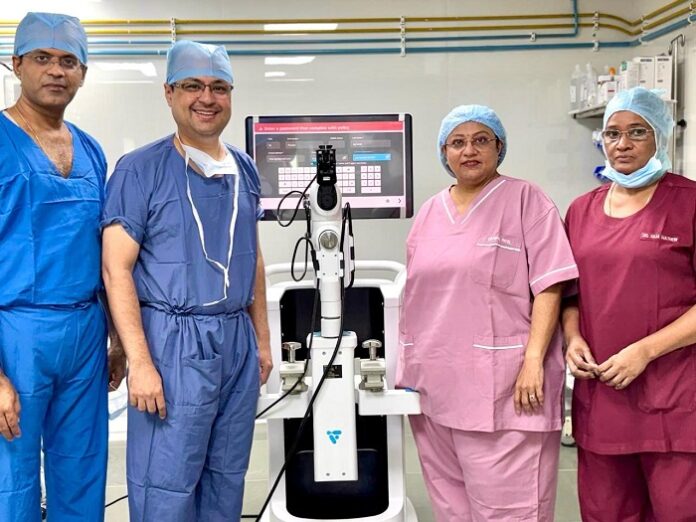Robotic knee surgery is fast becoming a game-changer in the field of orthopedics, offering unprecedented precision and faster recovery for patients undergoing knee replacement procedures. With rising global demand for joint replacements, this cutting-edge technology is setting a new benchmark for orthopedic outcomes—especially in Mumbai, where leading surgeons are pioneering its use across top hospitals.
How the Technology Works
Robotic-assisted knee surgery is primarily used in treating advanced osteoarthritis.
Surgeons at Mumbai’s Lilavati Hospital and Arogyanidhi Hospital are using the Velys robotic system by DePuy Synthes, a Johnson & Johnson company. Unlike other robotic systems that require a pre-operative CT scan, the Velys robot eliminates this need—making the process more patient-friendly.
During surgery, the robotic arm precisely guides instruments, allowing surgeons to place implants with near-perfect alignment. This level of accuracy is crucial to the long-term success of the knee replacement.
Advantages of Robotic Knee Replacement
Unmatched Precision:
The biggest advantage of robotic surgery lies in its precision. While traditional knee replacements depend heavily on a surgeon’s manual skills, the robotic system enhances accuracy and consistency in implant placement, significantly reducing the chances of human error.
Tailored to Each Patient:
Robotic systems allow surgeons to create a 3D model of the patient’s unique anatomy and plan the procedure accordingly. Real-time intraoperative feedback ensures the surgery proceeds exactly as mapped—resulting in more predictable and improved outcomes.
Faster Recovery:
Because the robotic approach is minimally invasive, patients often report reduced pain, less trauma to surrounding tissues, and a quicker return to daily activities. In many cases, patients resume mobility earlier than those who undergo conventional surgery.
Longer-Lasting Implants:
Improved implant alignment and precise gap balancing contribute to better joint functionality. This reduces the risk of post-operative complications like misalignment or implant loosening, extending the life of the knee prosthesis.
Reduced Blood Loss:
An added benefit is the reduced blood loss during surgery. As a result of leaving the femoral canal untouched in robotic procedures, the need for transfusions decreases significantly.
Mumbai Surgeons Lead the Way
Dr. Pranav Agrawal and Dr. Ritesh Nazareth recently performed Arogyanidhi Hospital’s first three robotic knee surgeries, ushering in advanced orthopedic care at the facility.
A Look Ahead: The Future of Robotic Orthopedics
Robotic knee surgery offers precise, personalized care with faster recovery and improved outcomes.
Conclusion
Robotic knee surgery is redefining patient outcomes in orthopedic care. With superior precision, shorter recovery times, and personalized treatment plans, this technological advancement is improving lives—one knee at a time.
























